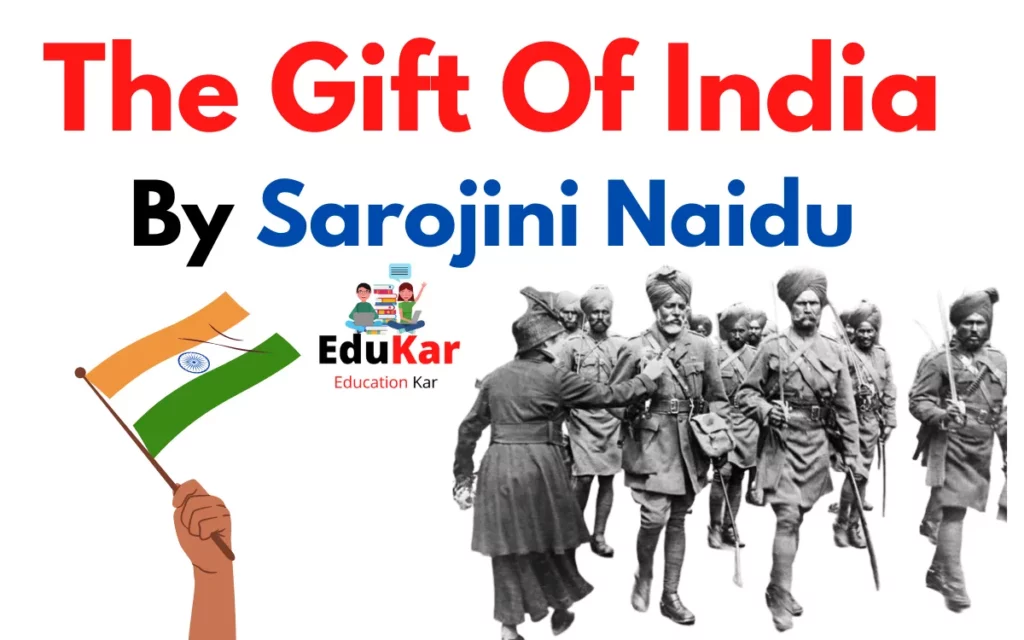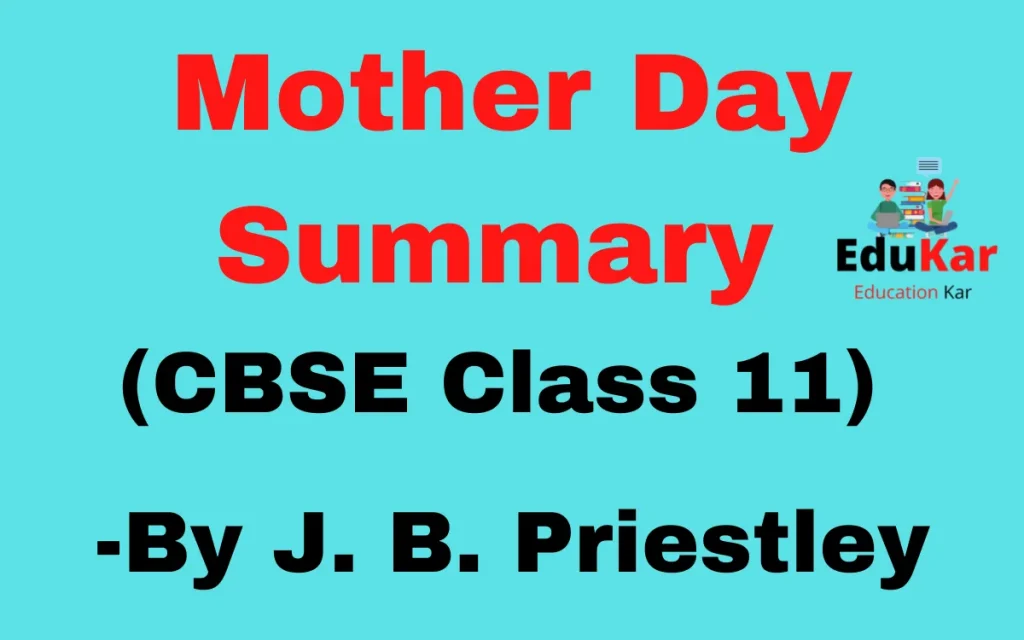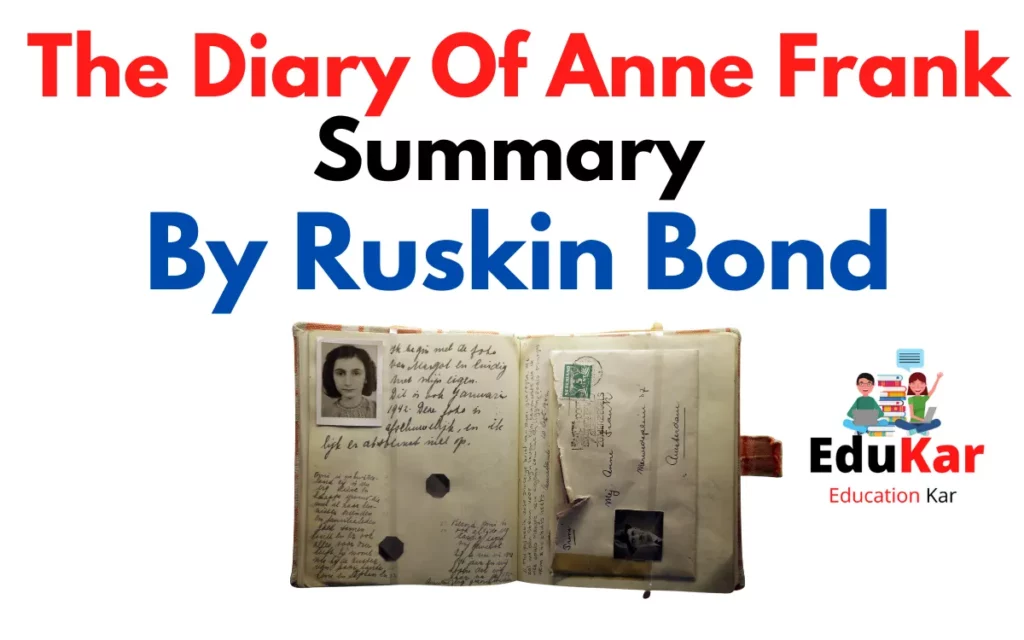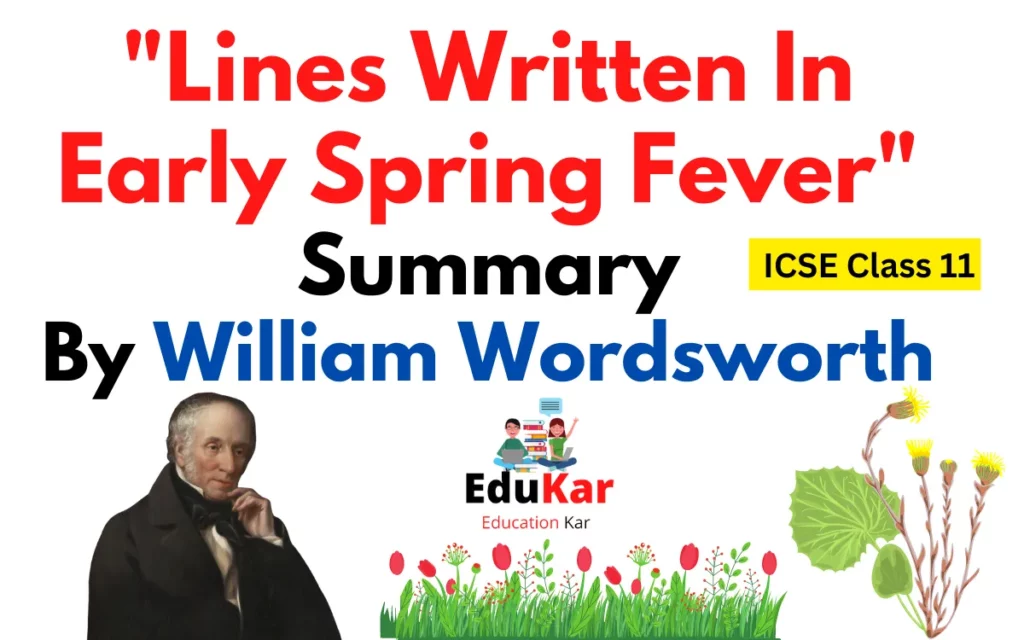Contents

| Name | The Gift Of India |
| Subject | English |
| Board | ICSE |
| Type | Poem |
| Author | Sarojini Naidu |
Introduction
The poem “The Gift of India” by Sarojini Naidu is a tribute to the soldiers who fought and died in World War I and other conflicts around the world. The poem was written during the Indian independence movement, when India was struggling for its own freedom from British colonial rule. Naidu was a prominent Indian independence activist and poet who used her writing to advocate for social justice and political change. In “The Gift of India,” she vividly describes the sacrifice of Indian soldiers and their families, as well as soldiers from other parts of the world. The poem is a powerful and moving tribute to those who have given their lives in the service of their country, and it emphasizes the importance of remembering and honoring their sacrifice, even in times of peace.
ICSE English Summary – “The Gift of India”
Stanza 1:
Is there ought you need that my hands withhold,
Rich gifts of raiment or grain or gold?
Lo! I have flung to the East and West
Priceless treasures torn from my breast,
And yielded the sons of my stricken womb
To the drum-beats of duty, the sabers of doom.
In this stanza, the speaker is asking if there is anything that the listener needs but is not receiving from them. They mention that they have already given valuable possessions and even sacrificed their own children for duty and war.
In easy words, the speaker is asking if there is anything else the listener needs, and emphasizes that they have already given a lot, including their own children for duty and war.
Stanza 2:
Gathered like pearls in their alien graves
Silent they sleep by the Persian waves,
Scattered like shells on Egyptian sands,
They lie with pale brows and brave, broken hands,
They are strewn like blossoms mown down by chance
On the blood-brown meadows of Flanders and France.
In this stanza, the speaker is describing how soldiers from different parts of the world have died in various wars and are buried in different places. They mention how the soldiers from one place are buried by the Persian sea, while others are scattered like shells on Egyptian sands. The speaker goes on to describe how the soldiers’ bodies are like flowers cut down by chance and lying on the bloody fields of Flanders and France.
In simpler words, the speaker is talking about how soldiers from different countries have died in different wars and are buried in different places. They describe how the soldiers’ bodies are scattered like shells or flowers and how they are buried in different places around the world.
Stanza 3:
Can ye measure the grief of the tears I weep
Or compass the woe of the watch I keep?
Or the pride that thrills thro’ my heart’s despair
And the hope that comforts the anguish of prayer?
And the far sad glorious vision I see
Of the torn red banners of Victory?
In this stanza, the speaker is asking if anyone can truly understand the depth of their grief and sorrow for the loss of the soldiers. They also mention the pride they feel for the soldiers’ sacrifice and the hope that comes with prayer. The speaker goes on to describe a vision of victory, which is bittersweet because of the loss and pain that came with it.
In More words, the speaker is asking if anyone can fully comprehend the sadness they feel for the soldiers who died. They describe feeling both pride and hope, but also the pain that comes with the vision of victory.
Stanza 4:
When the terror and the tumult of hate shall cease
And life be refashioned on anvils of peace,
And your love shall offer memorial thanks
To the comrades who fought in your dauntless ranks,
And you honour the deeds of the deathless ones,
Remember the blood of thy martyred sons!
In this stanza, the speaker imagines a future time when war and hatred have ceased, and life is rebuilt in a peaceful way. They encourage the listener to honor and remember the soldiers who fought bravely and gave their lives for their country. The speaker emphasizes the importance of not forgetting the sacrifices made by these soldiers in the pursuit of peace.
The speaker is imagining a time of peace in the future and encouraging the listener to remember and honor the soldiers who gave their lives for their country. They emphasize the importance of not forgetting these sacrifices.
The Gift of India MCQ
The Gift of India MCQ
About The Author
Summary & analysis of Sarojni Naidu’s book “The Gift of India.” The Nightingale of India, Sarojni Naidu, preaches patriotism & seeks to instil a sense of national pride in Indians. The 1915 poem “Gift of India” commemorates the triumph of the British soldiers who heroically fought for their country during World War 2.
Conclusion – “The Gift of India”
The conclusion of the poem is implied in the final stanza, where the speaker urges the listener to remember the sacrifice of the soldiers even in a future time of peace. The poem highlights the devastating impact of war and the sacrifice of those who fought and died in conflicts around the world. The speaker emphasizes the importance of remembering and honoring the soldiers, so their sacrifices will not be forgotten even in a time of peace. Overall, the poem is a powerful reminder of the human cost of war and the need for remembrance and gratitude for those who have given their lives in service to their country.




![Grandma Climbs A Tree Summary [Class 10] By Ruskin Bond Grandma Climbs A Tree Summary](https://edukar.in/wp-content/uploads/2022/09/Grandma-Climbs-A-Tree-Summary-1024x597.webp)











